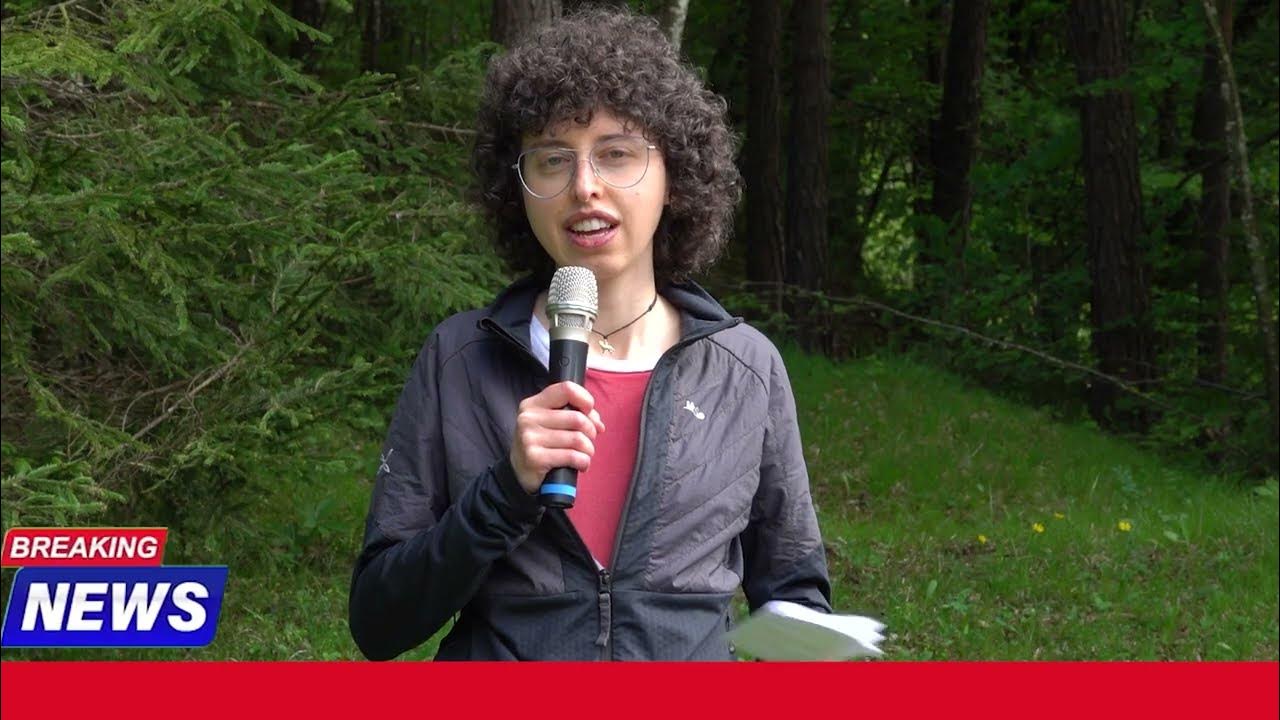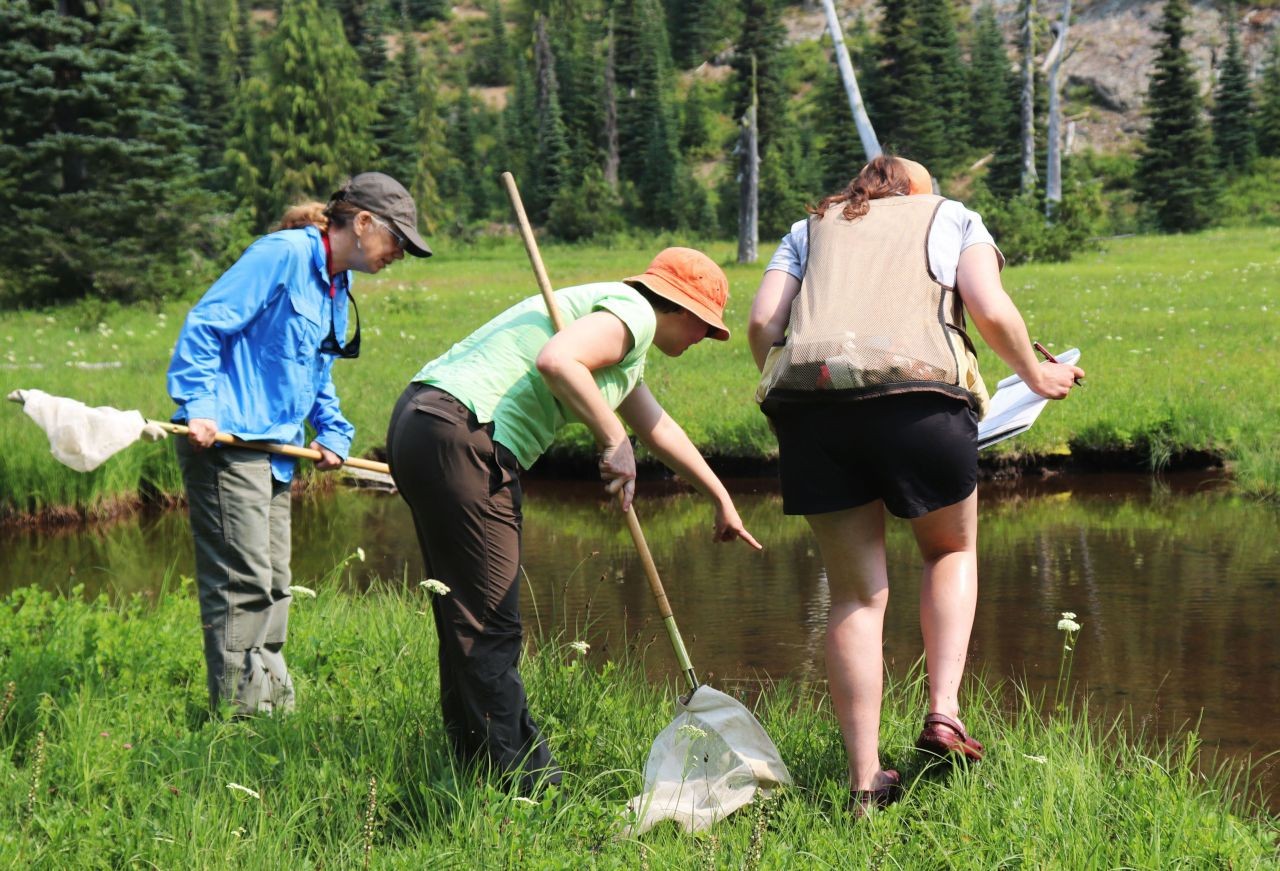Citizen science in environmental monitoring: a framework for ethical issues
As part of my PhD studies at BOKU University, I had the great pleasure to join the "Research ethics" group within the within the "Principles and challenges of research" course, held by prof. Ika Darnhofer. We were asked to choose a topic of our interest, summarizing our reflections in a short document. I thus decided to delve into the challenging field of ethics in citizen science, with a particular focus on biodiversity projects. For each aspect considered, I chose some question to encourage personal reflection and self-assessment.
Not enough time to read the post? Watch the 2 min video on You Tube!

Citizen Science ethics - YouTube
Background
Citizen science in biodiversity research covers a wide variety of volunteer activities, from the collection of casual observations to conducting detailed species monitoring. The current increase in citizen science practices demonstrates a clear societal desire to participate more actively in knowledge production and thus decision-making. At the same time, researchers and research institutions are discovering the benefits of opening research to society. However, as these research practices increase, new ethical issues arise, surrounding e.g., environmental ethics in the field, inclusivity, data quality and integrity, data sharing and intellectual property, privacy, as well as the power balance between scientists and volunteers. Citizen science can challenge existing ethical norms because it falls outside of customary methods of ensuring that research is conducted ethically (Rasmussen and Cooper, 2019). Citizen science thus needs to approach ethics on its own terms, learning from existing research ethics and supplementing it where necessary. This short paper highlights some ethical issues pertinent to citizen science in the context of biodiversity monitoring and research, proposing some questions to guide the self-assessment of a project.
a. Environmental ethics in the field
Biodiversity-focussed citizen science usually relies on many people gathering data on both common and threatened species (crowdsourcing approach). If not managed or regulated, this could lead to habitat degradation and wildlife disturbance, especially when it involves handling or other direct interactions (Palmer et al., 2021). Biodiversity citizen science thus needs to carefully consider how to balance biodiversity conservation, habitats integrity, the welfare of monitored species, and the education of people (Steven et al., 2019).
Ethical questions:
1. Could the research design of my project generate risks for the species/habitat surveyed?
2. How can I ensure both responsible monitoring and community participation in my project?
b. Inclusivity
In the past, citizen science projects have not typically demonstrated a large degree of diversity with regard to participants. Citizen scientists coming from economically disadvantaged backgrounds face hurdles such as higher time constraints, and a lack of access to appropriate education (Pateman et al., 2021). Many biodiversity-citizen science projects are also powered by mobile and web technologies. Access to and discomfort with technology have been identified as other potential barriers to participation by volunteers from certain groups (Vasiliades et al., 2021).
Ethical questions:
1. Do the conditions for participation present potential barriers for specific groups of people?
2. What measures do I need to take to ensure that the technology used is accessible to all?
c. Data quality and integrity
There are several error sources that negatively affect citizen science data quality: errors in the identification of species, inaccurate measurements in the field, inadequate sampling design (Fraisl et al., 2022). In addition to the methodological errors, often there are biases in data collection, with a well-known tendency of observers to report on rare rather than common species, to report unique observations, and to visit more accessible places. However, some strategies can enhance data accuracy, managing to produce data with accuracy equal to – or in some cases superior to – that of scientists (Freitag et al., 2016).
Ethical questions:
1. What specific measures do I need to implement to ensure data quality (e.g. training sessions for participants, providing educational materials, regular monitoring, etc.)?
2. How can I validate data collected by citizen scientists?
d. Data sharing and intellectual property
Access to and sharing of citizen science data is crucial: data sharing through use and re-use by participants can improve trustworthiness within the project, and re-use by outside parties can improve the data's relevance (Williams et al., 2018). As an emerging governance framework, FAIR (Findable-Accessible-Interoperable-Reusable) guiding principles for scientific data (Wilkinson et al., 2016) can be a useful guideline to build a reliable data management plan that ensures data is accessible and can easily be found.
A related issue is intellectual property: in biodiversity research through citizen science, those who generate data are not likely to be those making stewardship decisions about it (Cooper et al., 2021). Ethical dilemmas could thus arise when different parties have conflicting interests regarding data governance.
Ethical questions:
1. Does my data management comply with the FAIR guiding principles?
2. Have I considered internal policies to govern the occurrence of sensitive species in the data?
3. Do I keep volunteers updated and involved in the decision on the how and why their data is used?
e. Privacy
Common online platforms used to monitor biodiversity require citizen to register, and citizens may use their real name as username. In this case the names become part of the data set, which – next to the species observed – also documents who was where and when. Indeed, next to the volunteer name, datasets usually include exact geo-location, date and time of each checklist, status as "stationary" or "traveling", duration of trip, and party size (Bowser et al., 2017). Despite the potential privacy risks, participants are generally not aware of possible tracking personal data while contributing to a citizen science project.
Ethical questions:
1. What are the potential threats to volunteers' privacy in my project? How can I minimise them?
2. Is the residual risk clearly communicated to citizens when they are invited to participate?
3. How can my data flows and interfaces support the privacy of volunteers (e.g., separating names of volunteers from the data they collect through use of codes, encrypting data)?
f. Power balance between scientist and volunteers
Because citizen scientists are usually providing assistance to researchers without the expectation of financial compensation, there is the potential for exploitation (Kasperowski et al., 2021). Scientists should make sure that citizens are comfortable with the work they have been assigned and the expectations for completion (e.g., deadlines, deliverables, etc.). Scientists should not put citizens into unsafe situations or circumstances, or burden citizens with work that they feel they may be unable to perform on time (Resnik et al., 2015). Though citizen scientists may not require authorship for career advancement, it is still important for professional scientists to give citizens appropriate credit to express gratitude for their work and as a matter of basic fairness.
Ethical questions:
1. Do my volunteers feel comfortable with the work they have been assigned? How is this checked throughout the duration of the project?
2. Do I give citizens appropriate credit for their contribution in my publications?
Essential bibliography
- Bowser, A., Shilton, K., Preece, J., Warrick, E., 2017. Accounting for privacy in citizen science: Ethical research in a context of openness, in: Proceedings of the ACM Conference on Computer Supported Cooperative Work, CSCW. pp. 2124–2136. https://doi.org/10.1145/2998181.2998305
- Cooper, C.B., Rasmussen, L.M., Jones, E.D., 2021. Perspective: The power (dynamics) of open data in citizen science. Frontiers in Climate 3, 57. https://doi.org/10.3389/fclim.2021.637037
- Fraisl, D., Hager, G., Bedessem, B., Gold, M., Hsing, P.Y., Danielsen, F., Hitchcock, C.B., Hulbert, J.M., Piera, J., Spiers, H., Thiel, M., Haklay, M., 2022. Citizen science in environmental and ecological sciences. Nature Reviews Methods Primers 2, 1–20. https://doi.org/10.1038/s43586-022-00144-4
- Freitag, A., Meyer, R., Whiteman, L., 2016. Strategies employed by citizen science programs to increase the credibility of their data. Citizen Science: Theory and Practice 1, 2. https://doi.org/10.5334/CSTP.6
- Kasperowski, D., Hagen, N., Rohden, F., 2021. Ethical boundary work in citizen science. Nordic Journal of Science and Technology Studies 9(2), 13–24. https://doi.org/10.5324/njsts.v10i1.4318
- Palmer, A., Reynolds, S.J., Lane, J., Dickey, R., Greenhough, B., 2021. Getting to grips with wildlife research by citizen scientists: What role for regulation? People and Nature 3, 4–16. https://doi.org/10.1002/pan3.10151
- Pateman, R., Dyke, A., West, S., 2021. The diversity of participants in environmental citizen science. Citizen Science: Theory and Practice 6. https://doi.org/10.5334/CSTP.369
- Rasmussen, L.M., Cooper, C., 2019. Citizen science ethics. Citizen Science: Theory and Practice 4(1), 5. https://doi.org/10.5334/cstp.235
- Resnik, D.B., Elliott, K.C., Miller, A.K., 2015. A framework for addressing ethical issues in citizen science. Environmental Science & Policy 54, 475–481. https://doi.org/10.1016/J.ENVSCI.2015.05.008
- Steven, R., Barnes, M., Garnett, S.T., Garrard, G., O'connor, J., Oliver, J.L., Robinson, C., Tulloch, A., Fuller, R.A., 2019. Aligning citizen science with best practice: Threatened species conservation in Australia. Conservation Science and Practice 1, e100. https://doi.org/10.1111/CSP2.100
- Vasiliades, M.A., Hadjichambis, A.C., Paraskeva-Hadjichambi, D., Adamou, A., Georgiou, Y., 2021. A systematic literature review on the participation aspects of environmental and nature-based citizen science initiatives. Sustainability 13(13), 7457. https://doi.org/10.3390/su13137457
- Wilkinson, M., Dumontier, M., Aalbersberg, I., et al. 2016. The FAIR Guiding Principles for scientific data management and stewardship. Scientific Data 3, 160018. https://doi.org/10.1038/sdata.2016.18
- Williams, J., Chapman, C., Leibovici, D.G., Loïs, G., Matheus, A., Oggioni, A., Schade, S., See, L., Pieter, P., Van Genuchten, L., 2018. Maximising the impact and reuse of citizen science data. In: Hecker, S., Haklay, M.E., Bowser, A., Mkuch, Z., Vogel, J., Bonn, A. (Eds). Citizen Science: Innovation in Open Science, Society and Policy. UCL Press, London, pp. 321–336. https://doi.org/10.14324/111.9781787352339
Ähnliche Beiträge
Kommentare
By accepting you will be accessing a service provided by a third-party external to https://www.citizen-science.at/






